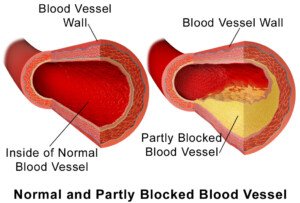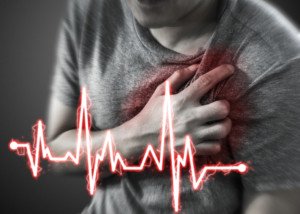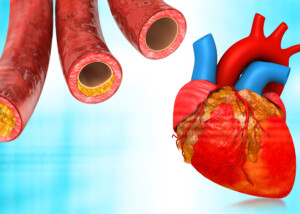This study shows that even healthy people with no early family history of heart disease may want to get a calcium score test.
Have you had your coronary calcium score taken? This is a five minute procedure using a CT scanner.
You just lie there while the image is taken: about five minutes.
This procedure yields a numerical value that’s associated with the amount of hard (stable) plaque buildup that’s in your heart’s arteries.
A score of zero means that there is no detectable hard plaque buildup.
Calcium scoring does not show soft (unstable) plaque buildup. The soft plaque is unstable and may spontaneously break off, causing a clot in a coronary artery: a heart attack.
However, enough hard plaque can cause obstructive coronary artery disease, narrowing the interior of the arteries, leading to reduced blood flow in the heart.
Calcium Scoring Indicates Death Risk Even in People without Family History of Heart Disease
Emory University School of Medicine researchers analyzed coronary calcium scores taken from over 9,700 study subjects.
At the time these participants had their scans, none had signs of heart disease.
The calcium scores, say the researchers, were accurate in predicting all-cause mortality up to 15 years out in patients without symptoms.
Higher CAC Score = Higher All-Cause Mortality
“The presence of calcium in the coronary arteries is an early indicator of coronary artery disease,” says Carlos González Quesada, MD, FACC, attending cardiologist with Cedars-Sinai Medical Center and a cardiologist with Cardiovascular Medical Group of Southern California.
“Patients with coronary calcifications are known to be at increased risk of developing heart attacks and strokes.
“Physicians may consider starting low dose aspirin and lowering-cholesterol medications, such as statins, in patients with calcium in the coronary arteries.
“The most recent guidelines of the American College of Cardiology/American Heart Association (ACC/AHA) recommend performing a coronary calcium scan in patients who have a 10-20% risk of developing a cardiac event within the next 10 years.
“To determine the individual 10-year risk of a cardiac event, doctors enter the patient’s information into an online calculator or estimator (tools.acc.org/ASCVD-Risk-Estimator-Plus/#!/calculate/estimate).
“The information used by these calculators includes age, gender, race, blood pressure, the cholesterol and presence of risk factors such as diabetes, high blood pressure or smoking.
“Although family history of a cardiac event may not be present, patients may have other risk factors that would put them in the intermediate or high risk.
“If the patient is determined to have an intermediate risk, a coronary calcium scan would identify individuals who may benefit from primary prevention strategies such as aspirin and statins.
“In other words, a family history of heart disease is an important predictor of cardiovascular events — but is not the only one or the strongest one.
“For example, someone may not have family history of heart disease, but he or she may have elevated cholesterol, high blood pressure and history of smoking.

BruceBlaus
“A coronary scan may confirm the presence of early coronary artery disease.
“In the setting, the treating doctor may recommend starting aspirin and statin medication.”
 Dr. Quesada is board certified in internal medicine and cardiovascular diseases, with subspecialties in general cardiology plus interventional and structural cardiology. He evaluates and treats many conditions including shortness of breath, chest pain, coronary blockages and clot disorders.
Dr. Quesada is board certified in internal medicine and cardiovascular diseases, with subspecialties in general cardiology plus interventional and structural cardiology. He evaluates and treats many conditions including shortness of breath, chest pain, coronary blockages and clot disorders.
 Lorra Garrick has been covering medical, fitness and cybersecurity topics for many years, having written thousands of articles for print magazines and websites, including as a ghostwriter. She’s also a former ACE-certified personal trainer.
Lorra Garrick has been covering medical, fitness and cybersecurity topics for many years, having written thousands of articles for print magazines and websites, including as a ghostwriter. She’s also a former ACE-certified personal trainer.
.










































